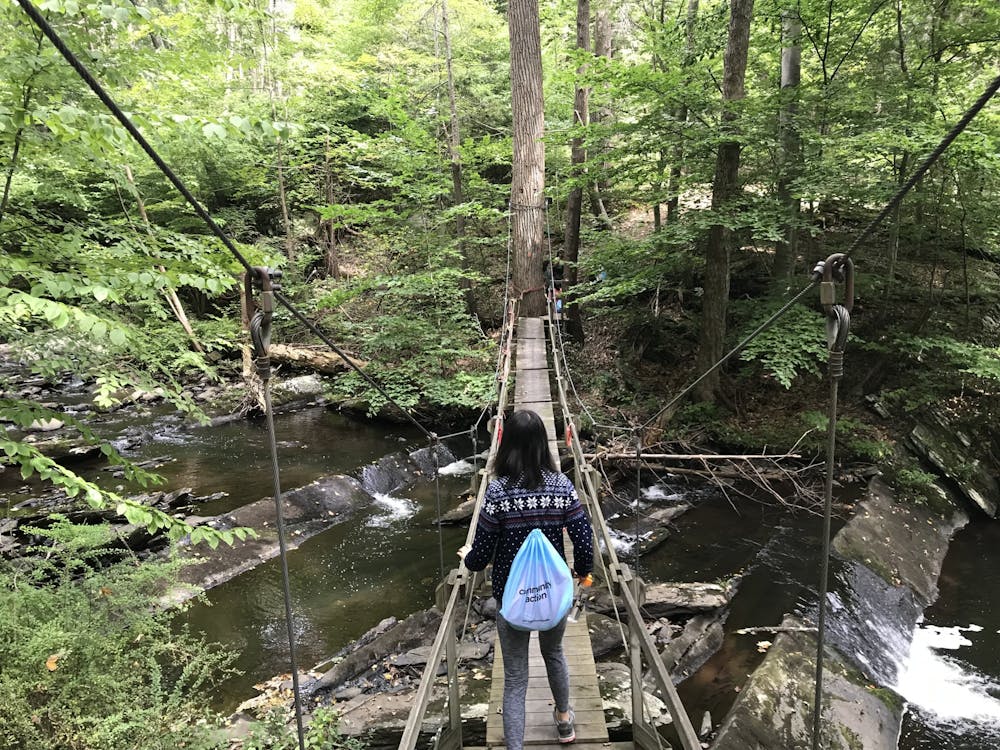To the Editor:
Since the start of the semester, there have been multiple pieces in The Daily Princetonian about Community Action’s (CA) first-year orientation program, offering valuable insights into student perceptions and feedback that will enable community partners, CA staff, and CA Fellows to improve the experience for future students.
As a five-year partner with CA and a 114-year partner with the University community, we thought it important to share some information about how the Princeton-Blairstown Center (PBC) approaches the vital job of helping first-year students acclimate to Princeton, and how committed we are to improving the program where possible.
The published goals of the CA program are clear. The Pace Center’s website states, “CA introduces first-year students to community at Princeton and the surrounding area. Students learn what it means to be part of a community, how to grapple with complex societal questions, and begin to develop an awareness of their personal values.”
From the moment we greet students at our PBC welcome circle, we talk about students taking risks, stepping out of their comfort zones, and getting to know others in their small group and in the larger community — people who can serve as a valuable support group when they return to campus.
While service has always been integral to the CA orientation week, it has purposefully taken a back seat to community building. PBC’s ropes and challenge course activities, canoeing, problem-solving initiatives, and hikes are intentionally designed to build strong, lasting CA group relationships and bonds.
We also endeavor to provide authentic service opportunities that relate directly to our mission of serving young people from historically marginalized communities. This year’s service projects included creating and painting a garden sign, writing for PBC’s newsletters/social media platforms, planting a new section of our pollinator garden, preparing environmental education materials, and repairing one of our challenge course elements. In addition, the Pace Center arranged for one group to visit Trenton to work with another community partner.
In all cases, the service work that Princeton students performed at PBC was meaningful and made a measurable difference to our staff and the clients that we serve. One important takeaway for PBC from the recent discussion about Community Action is that we must do a better job helping CA students understand the value and impact their service has on the young people we serve throughout the year. For example, our vegetable and pollinator gardens are essential to our food justice program, providing a space for hands-on exercises which we use to equip young people with the knowledge and skills they need to address food insecurity in their communities. In addition, the environmental education materials prepared by the CA volunteers will be used to help students from cities like Trenton and Newark to better understand the water cycle and ways that environmental toxins creep into drinking water supplies in those communities and beyond.

We take our CA role very seriously. Each year, we meet numerous times with our CA Fellows — Princeton students who coordinate the program — to listen carefully to their goals and help them plan and execute the very best program possible for Princeton students. Our Fellows come out to PBC’s site in advance, as do all the CA Leaders who will facilitate groups at PBC. We want the CA Leaders to feel a sense of physical and emotional safety and familiarity at PBC so they can provide the best experience possible.
During the 2022 program, in conjunction with the CA Fellow working with the Princeton-Blairstown Center, we made real-time adjustments based on weather, group needs, group feedback, and morale. Integrating feedback from Group 18 CA Leaders, including one of the students quoted in the initial article, we adjusted a session where the group learned about the effects of poverty in Trenton from a two-hour session to an hour and allowed the groups to try the high ropes course. Each year after the program ends, PBC debriefs from the experience internally to learn how we can make improvements. We also debrief the program with CA staff and our CA Fellow. Finally, we use a survey tool that is administered to all CA Leaders to make immediate program improvements and provide coaching to our staff.
Going forward, if our CA Fellows prefer, there are many opportunities to provide service experiences with other community partners located near PBC. There are local groups involved with food insecurity, land preservation and stewardship, poverty, employment services and training, and youth development, among others.
At the same time, regardless of where the service takes place and what types of service opportunities are available, it’s important to realize that nonprofit organizations have varying degrees of capacity to utilize volunteers. Even in the best of times, without the impacts of the COVID-19 pandemic that still plague nonprofits, the opportunity to utilize short-term volunteers to their best effect may not be possible. In addition, it is often the case that short-term volunteer opportunities — which frequently include essential but seemingly menial tasks — are not always perceived as meaningful by the volunteers because they often don’t have the chance to connect directly with the clients they are assisting.

PBC looks forward to continuing our valued partnership with the Pace Center and adjusting our programming based on students’ feedback to CA and each new CA Fellow we work with. We are grateful for the passionate feedback expressed by Princeton students and encourage their continued participation in shaping the CA orientation program through volunteering to be a CA Leader and/or applying to be a CA Fellow.
Pam Gregory is the President & CEO at the Princeton-Blairstown Center. Mark DeBiasse is the Vice President of Programs at the Princeton-Blairstown Center.








